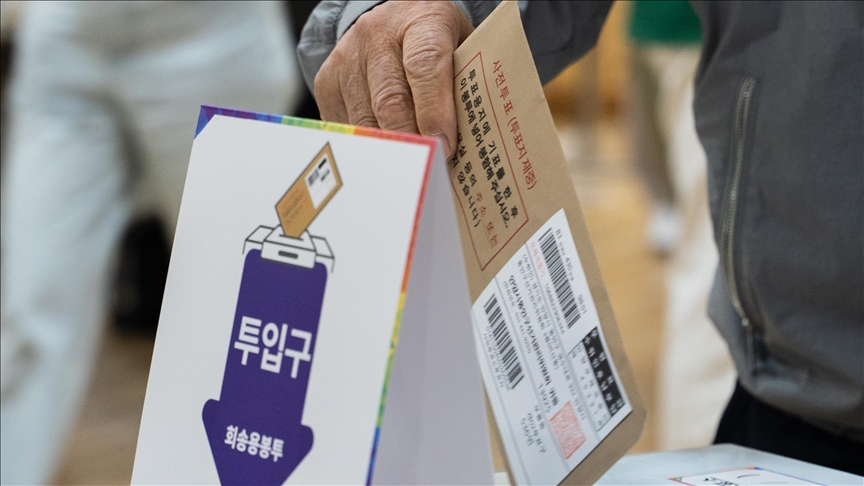Early vote count shows opposition’s Lee in lead as South Korea awaits new president
Voting to elect new president concludes at 8 pm local time (1100GMT), final results expected early Wednesday

- With over half of votes counted, Lee Jae-myung, representing the main opposition Democratic Party, garners nearly 50% support•
Kim Moon-soo from the ruling People Power Party trailing Lee with over 40% support
ISTANBUL
Early vote count in South Korea’s snap presidential election showed opposition candidate Lee Jae-myung in the lead, as suggested by most exit polls.
🇰🇷 South Koreans are voting in a snap presidential election after ex-President Yoon Suk Yeol was ousted for trying to impose martial law
— Anadolu English (@anadoluagency) June 3, 2025
🗳️ Turnout hit 65.5% by 2 pm, already higher than 2022
👥 Frontrunner: Lee Jae-myung of the Democratic Party https://t.co/BhMux0mUg9 pic.twitter.com/w7oQPvrDqk
With 70.02% of the votes counted so far, Democratic Party’s Lee leads with 48.51%, public broadcaster KBS reported.
According to Yonhap news, Lee was “certain to win” the election.
His rival Kim Moon-soo from the ruling People Power Party got 42.96% of the votes counted so far.
The East Asian nation on Tuesday voted in a snap election to pick a new leader, months after President Yoon Suk Yeol was removed from office for declaring martial law.
In initial comments ahead of official results, Lee thanked people and vowed to “fulfill heavy responsibilities of people's expectations.”
The counting of votes is continuing, while official results will take hours, and the new president is likely to be confirmed early Wednesday.
Polling stations opened at 6 a.m. local time (2100GMT Monday) and closed at 8 p.m. (1100GMT). The provisional voter turnout for this election was 79.4%, including early and overseas ballots, the highest in 28 years. The presidential poll in 2022 recorded 77.1% voter turnout.
The new president will serve a one-time five-year term.
Nearly 29,000 police officers were deployed across the country, where people cast their ballots at around 14,295 polling stations.
The early election was triggered by the Dec. 14 impeachment of former President Yoon following his failed attempt to impose martial law on Dec. 3.
Polling was due within two months after South Korea’s Constitutional Court upheld the National Assembly’s impeachment of Yoon in April.
He was supposed to serve as president until 2027.
Yoon, along with his wife, Kim Keon Hee, also cast their votes at a polling station in the capital Seoul.
Lee lost to Yoon in 2022 by a thin margin.
More than 15 million out of a total of 44.3 million eligible voters, including overseas South Koreans, had already cast their ballots in the two-day early voting period.
Besides the two frontrunners, there were three other candidates in the race: Lee Jun-seok of the New Reform Party, Kwon Young-guk from the Democratic Labor Party, and an independent contender, Song Jin-ho.
It was the 21st presidential election in the country since its establishment in 1948.
Lee Ju-ho, the deputy prime minister and education minister, became acting president last month after the resignations of Prime Minister Han Duck-soo and Finance Minister Choi Sang-mok.
This time South Korea will not see a transition period of 60 days, and instead, the new leader will quickly begin his term, with fresh policy decisions expected on issues including US tariffs, the sluggish domestic economy, and all-time low ties with North Korea.
*Islamuddin Sajid contributed from Pakistan








